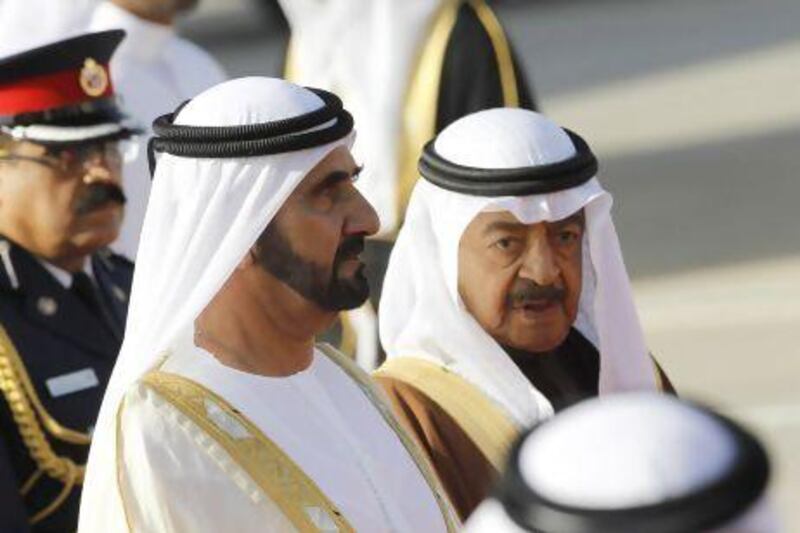The Gulf Cooperation Council (GCC) convened its annual summit yesterday, marking another year in its emergence as the region's most influential political bloc.
Bahrain's King Hamad Bin Isa Al Khalifa is hosting the two-day meeting, which also was being attended by Kuwait's emir, Sheikh Sabah Al Ahmed Al Jaber Al Sabah, and Sheikh Mohammed Bin Rashid Al Makhtoum, UAE Vice President, Prime Minister and Ruler of Dubai.
The prospect of a nuclear-armed Iran and Tehran's alleged meddling in the internal affairs of Arabian Gulf nations has galvanised the six-member alliance.
As the summit prepared to get under way at Sakhir Palace yesterday, Saudi Arabia's foreign minister, Prince Saud Al Faisal, warned Iran yesterday against interfering in Gulf Arab affairs and spreading "sedition."
"Interference to stir sedition is unacceptable from a neighbour," Prince Saud was quoted as saying by the London-based, Saudi-owned daily Al Hayat. "This is not comfortable because it is trying to use the circumstances to interfere."
In the past two years, the GCC has helped broker a political transition in Yemen, deployed security forces to help the government of Bahrain quell protests and agreed to deeper cooperation to address shared threats to their internal security. GCC member nations have also provided billions of dollars in aid to assist the governments of Egypt, Yemen and Bahrain.
Security issues are expected to dominate the summit agenda in Manama.
"We're facing a stage in which the Arab Gulf states must be united rather than separate parts, as in reality, we have similar political systems and share same threats that endanger our nations," the Bahrain state news agency quoted the country's prime minister, Khalifa Bin Salman Al Khalifa, said Sunday.
"What we want at this stage is a union of Gulf that would achieve our long sought cooperation and aspiration, move us forward to a further dedicated coordination, integration and interdependence we've been talking about, and would also provide us with a collective security umbrella as strategic option for achieving self-security."
The heads of state and top officials attending the meeting are expected to reiterate their call for the Syrian president, Bashar Al Assad, to step down. In November, the GCC recognised the Syrian National Coalition as the legitimate representative of the Syrian people.
Deeper economic cooperation remains a goal for the GCC, whose collective gross domestic product (GDP) in 2011 was some US$1.37 trillion.
Bahrain's foreign minister, Sheikh Khaled bin Ahmed Al Khalifa, said earlier this month that a proposed GCC monetary union was still under study.
The announcement of a union would be made at a "special summit in Riyadh in the near future", he said.
Other heads of delegation in Manama include Salman Bin Abdulaziz Al Saud, the crown prince of Saudi Arabia; Sheikh Tamim Bin Hamad Bin Khalifa Al Thani, the crown prince of Qatar; and Sayed Fahad bin Mahmoud Al Said, the deputy prime minister for the Council of Ministers of Oman.





